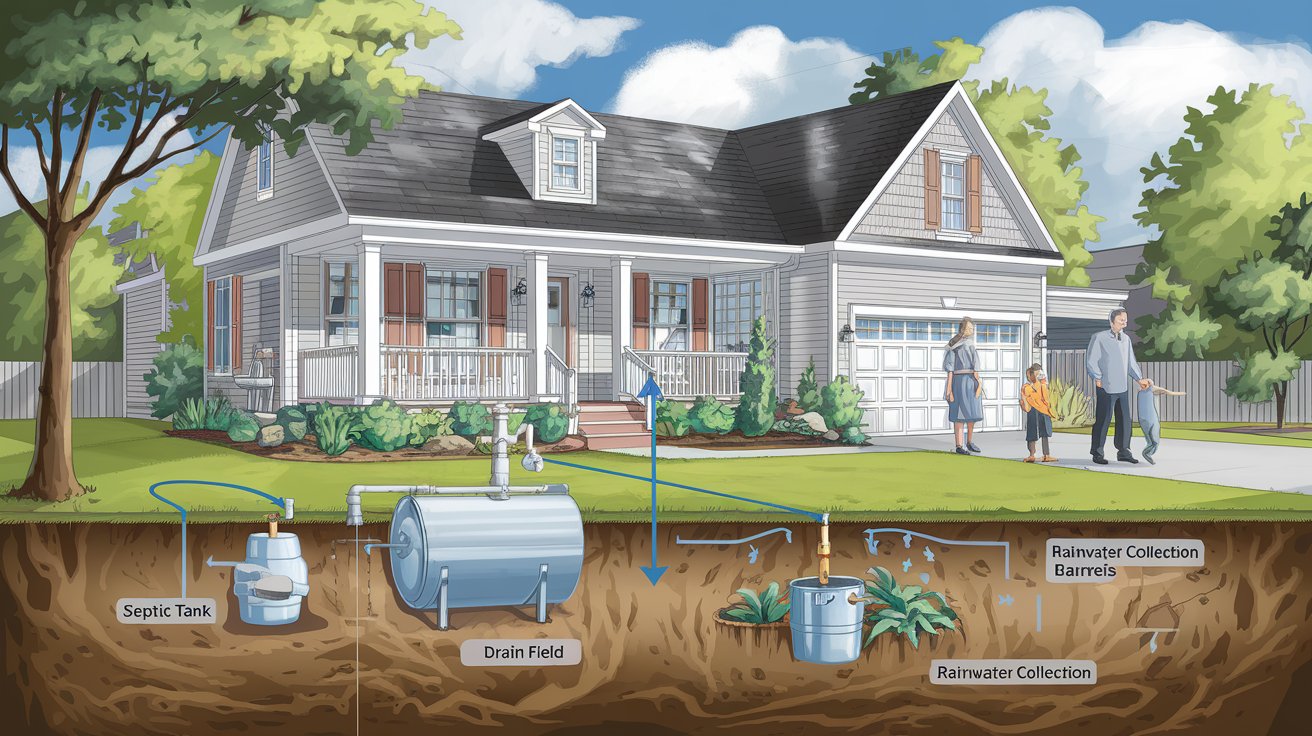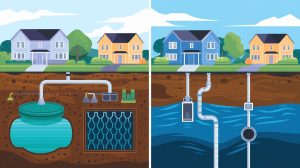Septic systems play a vital role in managing household wastewater, but excessive water usage can strain their efficiency and lead to costly problems. How to reduce septic system water usage is crucial for maintaining the system’s effectiveness and preventing potential damage. Reducing water consumption not only protects your septic system but also supports eco-friendly living. This article provides practical tips to minimize water usage, maintain your septic system’s health, and avoid unnecessary expenses. By implementing these strategies, you can ensure your septic system operates smoothly while contributing to environmental sustainability.
Table of Content
- Understanding the Impact of Excess Water Usage
- Simple Tips to Minimize Water Usage
- Outdoor Water Conservation
- Maintenance Tips for Long-Term Septic Health
- Septifix
- Septic Permit Links by State
Understanding the Impact of Excess Water Usage
Why Water Usage Affects Septic System Performance
A septic system is designed to handle a specific amount of wastewater daily. Excessive water usage disrupts this balance, preventing the tank from effectively separating solids from liquids. When the system is overwhelmed:
- Solids may enter the drain field, causing blockages and reducing its ability to filter wastewater.
- Untreated wastewater can seep into the surrounding soil, contaminating groundwater and nearby water sources.
- Over time, the system’s components, including the tank and drain field, may suffer irreversible damage, leading to costly repairs or replacements.
Efficient water management ensures your septic system operates as intended, protecting both your property and the environment.
Signs of Overloading Your Septic System
Recognizing the warning signs of excessive water usage can help you address issues before they escalate:
- Slow drains: When water takes longer to leave sinks, showers, or toilets, it could indicate the tank is overwhelmed.
- Foul odors: A persistent smell near the septic tank or drain field suggests that untreated waste is accumulating.
- Standing water: Puddles or soggy areas around the drain field may mean the system cannot absorb excess water.
- Frequent pumping needs: If your tank requires pumping more often than recommended, excessive water usage might be the culprit.
By understanding these impacts and signs, you can take proactive steps to reduce water usage and maintain your septic system’s health.
Simple Tips to Minimize Water Usage
Household Practices for Reducing Water Usage
Small changes in daily routines can make a big difference in water conservation:
- Fix leaky faucets and pipes immediately to prevent unnecessary water waste.
- Install low-flow toilets and showerheads to reduce water usage without sacrificing comfort.
- Upgrade to water-efficient appliances, such as dishwashers and washing machines.
Adjusting Laundry Habits
- Always wash full loads to maximize efficiency.
- Spread laundry across the week to avoid overloading the system with excessive water in a single day.
Bathroom Water-Saving Tips
- Turn off taps while brushing your teeth or shaving.
- Opt for shorter showers instead of baths to save gallons of water each day.
Outdoor Water Conservation
Managing Yard Irrigation
- Use rainwater collection systems for watering plants.
- Avoid overwatering, especially near the drain field, to prevent saturation that can disrupt the septic system.
Landscaping Tips for Septic-Friendly Yards
- Plant native, drought-resistant plants that require minimal watering.
- Avoid planting trees or shrubs with invasive roots near the septic tank, as they can damage pipes and the tank itself.
Maintenance Tips for Long-Term Septic Health
Regular Pumping and Inspections
Regular maintenance is essential for septic system longevity:
- Schedule pumping every 3-5 years, depending on household size and water usage.
- Have a professional inspect your system regularly to identify potential issues early.
Avoiding Harmful Chemicals
- Never flush chemicals, grease, or non-biodegradable items down the drain.
- Use septic-safe cleaning products to protect the tank’s natural bacteria, which are essential for breaking down waste.
Conclusion
Reducing water usage is a simple yet effective way to improve your septic system’s performance and lifespan. How to reduce septic system water usage involves adopting eco-friendly practices like fixing leaks, using water-efficient appliances, and managing outdoor irrigation. These steps help prevent costly repairs, protect your septic system, and contribute to environmental sustainability. By minimizing water consumption, you can ensure your septic system runs efficiently for years to come while reducing your ecological footprint.
Septifix










